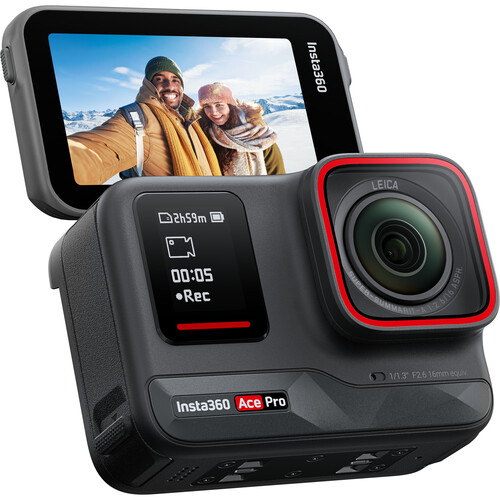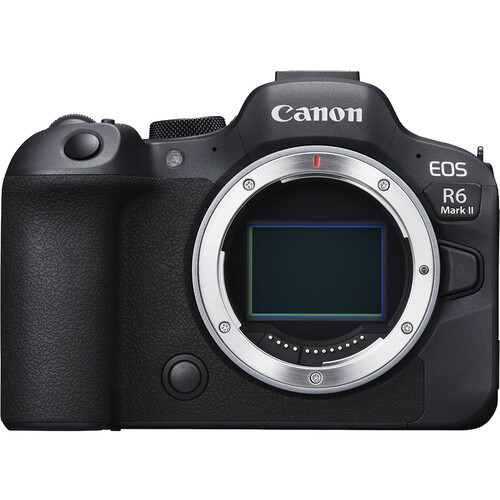The best cameras for vlogging: Top Choices for Every Filmmaker

Introduction to the Best Video Cameras
Importance of Choosing the Right Video Camera (250 words)
Whether you’re an aspiring YouTuber, a documentary filmmaker, or simply someone who loves capturing high-quality videos, choosing the right video recording camera is essential. The video camera you select determines the quality of your footage, how flexible your shooting setup is, and how professional your final product will appear.

From 4K video camera options to more compact and affordable video cameras, the market is filled with choices. The ideal camera for you depends on your specific needs—whether you prioritize portability, resolution, lens flexibility, or budget. For vloggers, a lightweight and user-friendly device is crucial, while professionals may require advanced features like interchangeable lenses and dual card slots.
A camera isn’t just a piece of equipment—it’s a tool that helps tell your story. Making an informed decision means knowing what to look for and how to match those features to your style of content creation. In this guide, we’ll explore the best video cameras available today, offering insights into what makes each camera ideal for a particular type of user.
Overview of Camera Types and Their Uses (250 words)
There are several categories of video cameras, each catering to different levels of expertise and purposes. Let’s explore the most common ones:
- Camcorders: These are traditional video cameras often used by event videographers and amateur filmmakers. They’re easy to operate and typically come with zoom lenses and built-in microphones.
- DSLRs and Mirrorless Cameras: Popular among content creators, these offer excellent video quality and flexibility with interchangeable lenses. Many can shoot in 4K and provide shallow depth of field for cinematic footage.
- Cinema Cameras: Designed for professional filmmaking, these offer superior sensors, RAW recording formats, and advanced color grading options. They’re often used for commercials, short films, and cinematic projects.
- Action Cameras: Compact, rugged, and often waterproof, these are perfect for adventure shots, sports, or any scenario requiring mobility and durability.
- Vlogging Cameras: Typically compact, lightweight, and equipped with flip screens, these cameras are tailored for vloggers and content creators who prioritize ease of use and portability.
Understanding the purpose and capabilities of each camera type helps narrow down the best video camera for your individual needs and budget.
Factors to Consider When Choosing the Best Video Camera
Resolution and Frame Rates (150 words)
Resolution and frame rate are two critical specifications when selecting a video camera. Camera refers to the amount of detail your camera can capture, with 4K video cameras now being the standard for high-quality content. Some professionals even opt for 6K or 8K cameras for future-proofing their content.
Frame rate impacts how smooth your video appears. A standard 30fps (frames per second) works for most uses, while 60fps provides smoother playback and is ideal for action scenes or slow-motion footage. For ultra-slow-motion, some cameras shoot at 120fps or more.
Your choice should reflect your content needs—casual creators might be fine with Full HD (1080p), while filmmakers should aim for 4K and above with multiple frame rate options.
Lens Options and Compatibility (150 words)
The lens can dramatically affect the look and versatility of your footage. Many professional video cameras and mirrorless cameras offer interchangeable lenses, allowing you to switch between wide-angle, telephoto, and macro options depending on the scene.
Camera bodies that support lens mounts from brands like Canon EF, Sony E-mount, or Micro Four Thirds give users access to a broad ecosystem of high-quality lenses. Consider cameras with autofocus support, optical image stabilization, and wide aperture lenses if you’re shooting in varied environments.
A good lens can be more important than the body itself, especially when producing high-end content. Beginners may prefer built-in zoom lenses for simplicity, while professionals benefit from the flexibility of multiple lens choices.
Top Picks for the Best Video Camera
Best Video Camera for Beginners (200 words)
Canon EOS R50
A fantastic mirrorless option for those new to videography, the Canon EOS R50 provides 4K video recording, dual-pixel autofocus, and a fully articulating screen—ideal for vlogging and self-recording. It also supports vertical video shooting and has a guided user interface, which is excellent for learning.
Another solid choice is the Sony ZV-E10, which offers excellent video quality, interchangeable lenses, and a built-in directional microphone, making it a strong all-in-one solution for content creators on a budget.
These cameras offer the right balance of features and ease of use, ensuring beginners can learn and grow without feeling overwhelmed.
Best Video Camera for Professionals (200 words)
Blackmagic Design Pocket Cinema Camera 6K Pro
This professional-grade cinema camera offers Super 35 sensors, dual native ISO, and the ability to shoot in 6K RAW, making it ideal for cinematic filmmaking. It has professional audio inputs, built-in ND filters, and a touchscreen interface.
For run-and-gun documentary work, the Sony FX3 is another top-tier option. It combines cinematic quality with a compact body, ideal for solo shooters. best cameras for vlogging With S-Cinetone color profiles, 10-bit 4:2:2 internal recording, and exceptional low-light performance, the FX3 is a go-to for many content professionals.
These cameras may come at a higher price, but they offer unmatched control, image quality, and flexibility for serious productions.
Best Compact Video Cameras for Vlogging
Characteristics of a Good Vlogging Camera (150 words)
When vlogging, you need a camera that’s lightweight, easy to handle, and quick to focus. Important features include:
- Flip-out screen for framing yourself while recording.
- Fast and reliable autofocus to keep your face in focus.
- Built-in microphone or mic input for clear audio.
- Good battery life and portability.
A vlogging camera should offer convenience without sacrificing video quality. Most creators prefer cameras that can shoot in 4K and work well in various lighting conditions.
Recommendations for Vlogging Cameras (150 words)
Sony ZV-1 is one of the best compact video cameras for vlogging. It features 4K video, product showcase mode, background defocus, and superior autofocus tracking. Its built-in mic comes with a windscreen, making it suitable for outdoor shoots.
Canon PowerShot G7 X Mark III is another excellent pick. It’s compact, offers live streaming support, and records in 4K without crop. It also includes a flip-up screen and USB-C charging, perfect for vloggers on the go.
Both cameras are highly rated among content creators for their simplicity and performance.
Budget-Friendly Video Cameras
Finding Value Without Compromising Quality (150 words)
You don’t need to spend thousands to get a capable video camera. Many affordable video cameras offer great resolution, decent stabilization, and reliable autofocus. Focus on finding the best value by considering user reviews, feature sets, and after-sales support.
While cheaper models may lack premium build quality or advanced manual controls, they often excel in ease of use and basic recording performance. Look for Full HD or 4K support, external mic inputs, and good battery life.
Top Affordable Video Cameras (150 words)
Panasonic HC-V180K is a great entry-level camcorder offering Full HD 1080p video, 50x optical zoom, and image stabilization. It’s compact, easy to use, and ideal for casual shooting or home videos.
Another option is the Akaso Brave 7 LE, an action camera that shoots in 4K, is waterproof, and comes with dual screens. It’s perfect for outdoor content creators or travel vloggers on a tight budget.
These cameras prove that good video production doesn’t have to come with a hefty price tag.
Conclusion: Choosing Your Best Video Camera (200 words)
The best video camera is one that fits your goals, skill level, and budget. Whether you’re just starting out or already shooting commercial projects, there’s a camera tailored to your needs.

Beginners can start with user-friendly models like the best cameras for vlogging Canon EOS R50 or Sony ZV-E10, while professionals may opt for the Blackmagic 6K Pro or Sony FX3 for more advanced control. Vloggers will appreciate the compact power of the Sony ZV-1 or Canon G7 X Mark III, and budget seekers will find solid value in Panasonic or Akaso offerings.
Remember to consider key features such as resolution, lens compatibility, autofocus, and audio inputs. These elements will significantly affect the quality and flexibility of your video work.
Investing in the right video recording camera can elevate your content and simplify your workflow. No matter your niche—be it vlogging, filmmaking, or video production—today’s market has something ideal for you. Take your time, assess your needs, and choose a camera that empowers your creativity.
Introduction to the Best Video Cameras
Importance of Choosing the Right Video Camera
Whether you’re an aspiring YouTuber, a documentary filmmaker, or simply someone who enjoys capturing high-quality videos, choosing the right video recording camera is essential. The camera you select not only determines the quality of your footage but also influences your overall workflow and storytelling capabilities.
In today’s competitive digital world, video quality can set you apart from others. Therefore, investing in a camera that suits your goals is critical. For example, vloggers may need a lightweight, easy-to-use model, whereas professionals demand advanced manual controls and high dynamic range.
Moreover, the right camera makes your editing process smoother, as higher-quality footage provides more flexibility in post-production. A camera isn’t just a piece of equipment—it’s a storytelling tool. Consequently, making an informed decision ensures your content reflects your vision and professionalism.
Overview of Camera Types and Their Uses
There are several categories of video cameras, each designed to meet different filming requirements. First, camcorders are excellent for simple, event-based recordings and are generally user-friendly. On the other hand, best cameras for vlogging DSLRs and mirrorless cameras offer flexibility with interchangeable lenses and are popular among content creators for their image quality and portability.
In contrast, cinema cameras are tailored for high-end productions. They come with larger sensors, RAW output, and superior dynamic range. Furthermore, action cameras like the GoPro are ideal for shooting on the move thanks to their rugged build and wide-angle lenses.
Overall, by understanding the strengths and limitations of each type, you can more effectively choose the best video camera for your specific needs. Md Shahidul Islam

Just Wonderful Content For Camera Blog